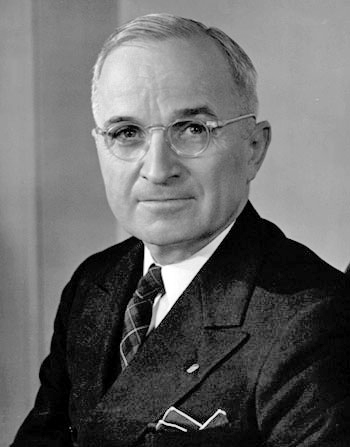Extra UN patrols sent by United States General MacArthur came upon massive Chinese troop movements across the Yalu River, the border between China and Korea, the latter of which had been torn apart by war for years. MacArthur had been haunted by nightmares of the Chinese invading, throwing back the UN peacekeeping force that had battled the Communist North Koreans since June. Because of his nightmares, the general had courteously met with President Truman in Washington on October 15 and advised an end to the war before an estimated 300,000 Chinese troops in Manchuria and 120,000 along the Yalu turned the war against the UN.
While MacArthur’s estimates were the entire troop strength for the region, most of whom would stay for defensive reasons, Truman noted such an escalation to the war. His approval rating had come into question over the Korean War with the Americans wondering if they had blundered into an unending war in miniature to World War I. At MacArthur’s humble request, Truman agreed to consider the using America’s atomic bombs, despite the risk that it may spark outright war with Russia.
Upon returning to Korea, MacArthur redoubled his aerial patrols to spy on Chinese movements. Chinese troops in the “People’s Volunteer Army” had moved secretly, mostly through the night under camouflage, but the overwhelming number of spotters finally picked them moving across the Yalu as lights flickered on water. MacArthur relayed the information to Truman, who ordered the move of nuclear weapons to airfields. At the disastrous defeat of the Battle of Unsan at the beginning of November, it became obvious that the Chinese meant total war. Truman approved MacArthur’s use of the atomic bomb, but only at key locations within northern Korea.
Since Unsan had been a surprise attack, MacArthur repaid in kind with seven atomic bombings of military positions on November 20. The strikes were followed by the Home-by-Christmas offensive on the 24th of November, turning what could have been a disastrous ambush into an overwhelming rout. Further atomic bombings destroyed key passes to China, irradiating the landscape and making troop movements possible only with protective gear. The trapped Chinese armies began to surrender while others made desperate attempts to escape through radiation-infested lands.
Appealing to Stalin, Mao began the campaign opposing the United States’ use of nuclear weapons. The USSR was the only other country to have an atomic bomb and the only that could challenge the might of the US. The Cold War had been obvious even before the end of Hitler’s regime, and now it had come to actual conflict. Stalin declared war December 12, and strikes in Europe against American allies began immediately.
Truman caught the blame for starting the Red War (also known as World War 3), and he would spend the rest of his term defending his decision. If he had not acted, he noted that the two nations would continually stockpile ever-more-powerful weapons until one destroyed the other or itself. Atomic weapons would play a key role, but the vast majority of the fighting would be traditional bombings, armor offenses, and infantry marches. For the third time in four decades, Europe would be torn apart by warfare. The Korean theater would serve as a radiation-protected launching ground against eastern Siberia and China, where the US Navy would also see support from new bases in Japan. In recently invaded Tibet, Chinese troops newly arrived in October of 1950, were driven out by NATO-supported Tibetan troops.
Facing a new war, perhaps even worse than that against Hitler, the West turned to the leaders that had gotten them through the last. Churchill was reelected Prime Minister in 1951, and the Americans elected General Eisenhower as President almost unanimously. Russia held to Stalin until his death in 1954, while the Chinese supported Mao until his Great Wall program to turn all of China into defense began logistical collapse. Credited with lasting leadership and bringing the front to the enemy first, the Capitalists of the world won the war with the liberation of Moscow in 1955 and then the overthrow of Mao in 1957.
With the restructuring of the world along the grounds of the Pax Americana, economic and technological improvement flourished over the course of the latter part of the twentieth century. In 2010, the radiation levels of the first of the cobalt-based nuclear weapons used in Korea have depleted to livable standards. The world looks forward to new areas of Germany, the Ukraine, Manchuria, and Siberia becoming survivable once again for renewed development after the world’s bloodiest war.
–
In reality, MacArthur had been discourteous to Truman, forcing the president to meet him at Wake Island on the 15th. Throughout the war, MacArthur would be eager to use up to thirty-four atomic bombs on China, but Truman would allow no more than the threat. In the week-long Battle of the Ch’ongch’on River, Communist forces would regain all North Korean territory above the 38th Parallel. MacArthur was relieved of command April 11, 1951, for his aggressiveness toward pushing for total war against the Communists. Ceasefire would be declared on July 27, 1953, but the war continues to this day.

That is why I am glad MacArthur was fired.He was an arrogant general surrounded by yes men.He could have started ww3.The problem was Truman thought the Korea war was a feint designed for the real Soviet attack on Europe.
ReplyDeleteThough China was forced to signed the truce by the threat of the US a bomb,rest assured the PLA will make absolutely sure China will never be under US nuclear blackmail.IF the US wishes to force the surrender of China in a future war,it will have to destroy China. The US will get maimed in the process.As time goes on,the PLA will be able to increase the threshold of damage on US assets.
No magic weapon be it missile shield,laser beam,lightning killer missiles,will restore the immunity enjoyed by the US since 1945.